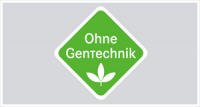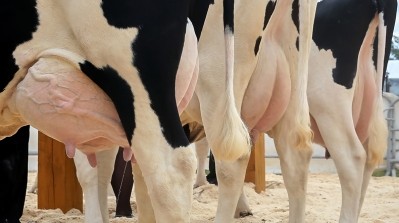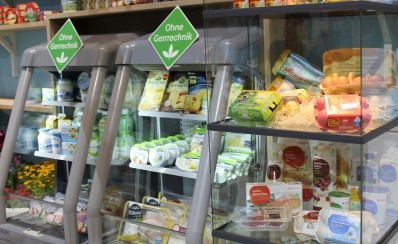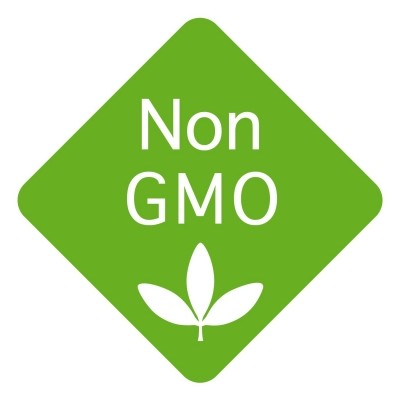German anti-GM soy in feed advocates set to stage rebuttal event

Last month, the German poultry farmers association (ZDG) withdrew its long-held pledge to only use non-GM soybeans in poultry feed on the basis that supplies to Europe of non-GM soymeal are shrinking and are not available in the required volumes.
Enough GM soy to go around
Speaking to FeedNavigator.com today, Jochen Koester, board member of the German Association of Food without Genetic Engineering (VLOG), refuted the claims of the ZDG.
“It is totally erroneous to say there is not enough GM free soy from Brazil to go around.
In the 2013 season, over 4 million metric tons of soy was batch certified non-GM by ProTerra - a tonnage volume that is absolutely ample to cover feed consumption within the EU.
The real issue here is price. The German poultry sector simply sees GM soy as being cheaper than conventional material.
The question that needs to be asked is whether the major retailers, in their ambition to carry the GM free label on their food products, are paying the poultry and layer egg producers enough to ensure they are not being squeezed on costs as a result of the premium attached to certified GM free soy,” said Koester.
German GM free soy needs
Chicken and turkey farmers in Germany annually use about 4.1 million tons of animal feed, of which soy meal is a key protein source. German poultry famers need around 800,000 tons of soybean meal annually to meet their feed supplementation requirements.
Five percent of global soy production is free of genetic modification, with the majority of that sourced from Brazil.
Rebuttal forum
Abrange, the Brazilian association of Non-GMO grain producers, takes the same line as VLOG in the soy supply debate. The trade group said that, compared to last season, there will be at least 10% more GM free production this year.
That trade group, along with VLOG and certifying body, the ProTerra Foundation, is inviting importers, feed compounders, poultry, pig and dairy producers, and retailers to a one-day event – 8 April – in Munster in Germany to hear the facts about the current supply and logistics of non-GM soy from Brazil.
The attendees will hear from soy growers, crushers and suppliers.
A question of feasibility
Katharina Wolfhard, a spokesperson for the ZDG, told this publication that it was unlikely a representative of the poultry trade association would be at the event in Munster.
And she said the decision of the German poultry sector to migrate away from only using GM-free soy in poultry feed “was not taken frivolously.”
“The opposite is the case: whilst other segments of the German meat industry have always used GM soy in their feed, out of conviction the German poultry industry for the last 14 years has always met the demand of the consumer to feed GM-free,” said Wolfhard.
A survey by Germany’s Emnid poll, taken in January 2014, found that 75% of consumers rated it important to have the label ‘Ohne Gentechnik’ (no genetic engineering) on a product.
“By now, unfortunately, the voluntary and unique commitment of the German poultry industry in terms of GM free feed is no longer a matter of conviction, but has developed into a question of feasibility,” she added.
Contaminants in GM free soy
ZDG also said that many of the supplies last year were heavily contaminated with GM soy – some over the permitted tolerance threshold of 0.9% under EU labelling, undermining the legal position of the German poultry sector and putting it at risk of deceiving the consumer.
“Despite high investments and intensive efforts to avoid any form of contamination, the number of contaminations increases year by year,” said Wolfhard.
She said the industry is also looking at measures such as modifying feed formulas to reduce the percentage of soy or the use of alternative protein-carriers and new technologies in feed production processes.
GM free soy projects bearing fruit
“It is unfortunate that the German poultry sector made those announcements now, particularly as so many GM free projects in Brazil are reaching fruition, guaranteeing even greater availability of GM free soy than before,” said Augusto Freire, president of the ProTerra Foundation, a Dutch sustainability initiative to which the main GM free soy certifying body, Cert ID, is accredited.
“There are more and more companies producing non GM soy in Brazil, sourcing certified sustainable conventional seeds from the Soja Livre project. And we are getting requests for certification every week,” he added.
He says that while the European feed industry did have legitimate concerns last year in terms of the high premium price attached to GM free soy – $150 per metric ton at its peak - and shipment delivery delays, those were only transitory issues and not ongoing trends.
Temporary supply glitch
Freire said that there were two factors behind this “temporary” supply glitch - a soy crop hit by bad weather and export shipments being held up due to port logistic bottlenecks.
“The combination of huge demand from China for GM soy and other crops from Brazil in the past few years and the ports infrastructure not keeping pace has resulted in restricted access to the major bulk terminals of Santos and Paranaguá, with subsequent hold-ups in ship berthing and loading.
With this logistics pressure, there were also mistakes made on the operational side at port loading and some procedures were skipped, leading to limited cross contamination of conventional soy with non-GM supplies," he said.
Alternative ports being used
But Freire said that solutions are being put in place to get around the logistic logjam, with alternative ports such as Imbituba, Aratu, São Francisco do Sul, Ilhéus and Santarém now being used to export GM free soy from Brazil.
Furthermore, he said, more and more freight containers are being used to ship GM free soy, therefore bypassing the bulk terminals completely and reducing the contamination risk as the containers remain sealed until arrival at their feed compounder destination.
The hiring of more personnel at ports will ensure all hazard and critical control points are met in terms of avoiding contamination issues, he added.
And Freire added that the Germany poultry industry should have negotiated directly with the Brazilian suppliers to reduce the premium price paid last year. Nevertheless, he “expects the premium to reduce dramatically this year based on the volumes of non GM soy available.”













